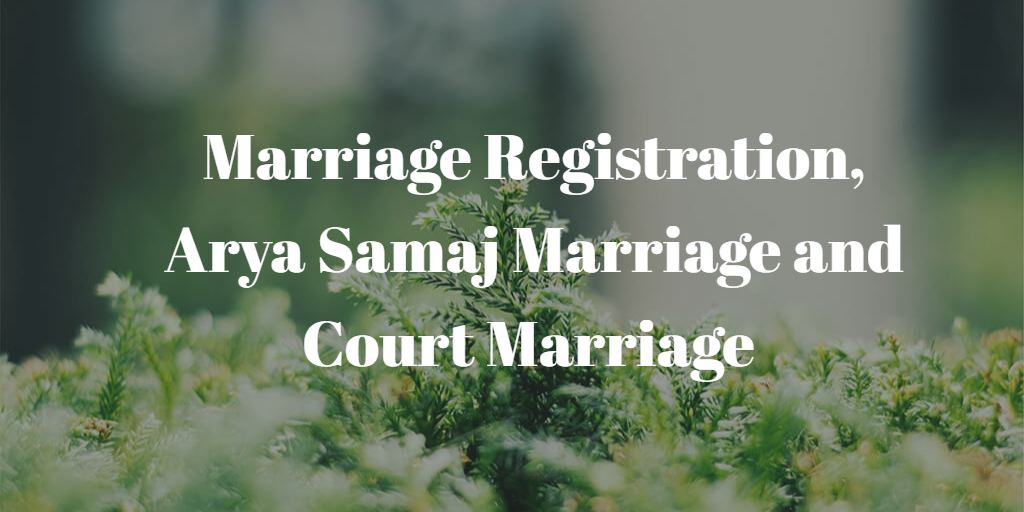Marriage Registration, Arya Samaj Marriage and Court Marriage in India.

Table of Contents
Marriage Registration in India
Arya Samaj Marriage
Court Marriage in India
1. Marriage Registration in India
Marriage registration is a legal process that officially recognizes a marriage and provides a marriage certificate as proof. In India, marriages can be registered under two acts: the Hindu Marriage Act (1955) and the Special Marriage Act (1954). The Hindu Marriage Act applies to Hindus, Sikhs, Buddhists, and Jains, while the Special Marriage Act caters to people of different religions or nationalities.
Procedure for Marriage Registration
Obtain the application form for marriage registration from the concerned local authority.
Fill out the form and gather the necessary documents, including proof of age, residence, marriage photographs, and witnesses.
Submit the application form, along with the required documents and fees, to the designated registrar office.
The marriage officer will verify the documents and schedule a date for the registration.
On the scheduled date, both spouses and witnesses must be present to sign the marriage certificate.
2. Arya Samaj Marriage
Arya Samaj marriage is a simple and cost-effective marriage ceremony performed according to Vedic rituals. This type of marriage is recognized under the Arya Samaj Marriage Validation Act (1937) and is applicable to people of all religions.
Procedure for Arya Samaj Marriage
Contact an Arya Samaj temple and provide the necessary documents, including age and residence proof.
Choose an auspicious date for the marriage ceremony.
Attend the marriage ceremony at the Arya Samaj temple, along with two witnesses.
Obtain the Arya Samaj marriage certificate after the ceremony.
3. Court Marriage in India
Court marriage in India is a civil ceremony that does not involve any religious rituals. It is conducted under the Special Marriage Act (1954) and is applicable to couples of different religions or nationalities.
Procedure for Court Marriage
Submit a notice of the intended marriage to the marriage officer of the district where at least one party has resided for a minimum of 30 days.
The marriage officer will publish the notice for 30 days, during which objections can be raised.
If no objections are raised, the marriage officer will schedule a date for the court marriage.
On the scheduled date, both parties, along with three witnesses, must be present to sign the marriage declaration.
The marriage officer will issue a court marriage certificate.
In conclusion, understanding the different types of marriages in India and their respective procedures can help you make an informed decision about the best option for your circumstances. Regardless of the type of marriage you choose, it is essential to comply with the legal requirements and complete the necessary formalities to ensure your marriage is legally recognized. By being aware of the procedures for marriage registration, Arya Samaj marriage, and court marriage, you can navigate the process more efficiently and celebrate your union with your partner in the way that best suits your preferences and beliefs.


